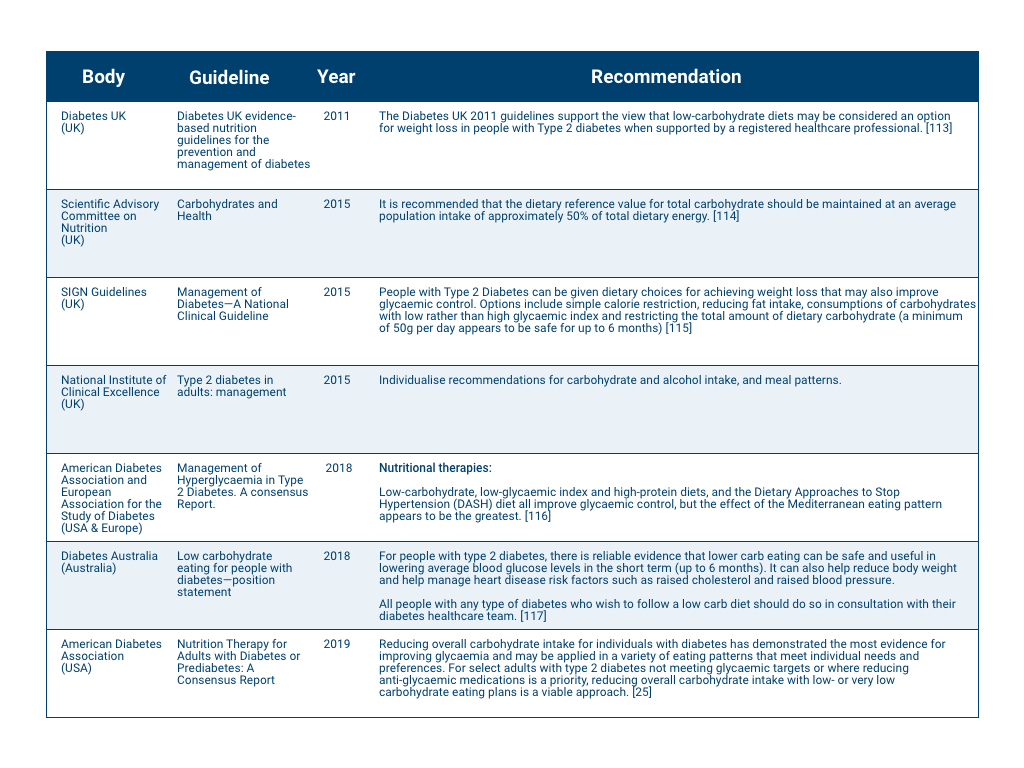A recent article in the International Journal of Environmental Research and Public Health has sought to provide guidance for clinicians in the use of low-carbohydrate diets in the management of obesity and type 2 diabetes.
The paper was published by a registered dietitian, a consultant endocrinologist and a general practitioner. Led by Diabetes Digital Media’s dietitian, Tara Kelly, the paper outlines a number of key areas of controversy surrounding the use of low-carbohydrate diets amongst the medical and scientific community.
The authors describe the field as “rife” with controversy:
“However, this is a scientific area that is rife with controversy and conflicting findings which have polarised expert opinion and can cause confusion for health care professionals and their patients.”
Dr Unwin, a GP from Southport, has been advocating the low carbohydrate approach to his patients living with type 2 diabetes, with an impressive cohort of ‘real world’ data, where 73 patients are in drug-free remission.
Professor Francis Finucane, a consultant endocrinologist in Galway, Ireland was the senior author on the paper. Professor Finucane leads the Bariatric service in Galway. His team run a pragmatic service where low-calorie diets, low-carbohydrate diets and bariatric surgery are all used for the treatment of obesity and type 2 diabetes.
The authors sought to “bring the reader on a journey through the controversies surrounding the approach”, says Kelly. Kelly also comments that “many clinicians, especially those not specialist in these areas are not aware of this approach as a viable option”.
We acknowledge this approach is not for everyone and encourage clinicians to have this as “one option in their toolbox”, she says. The authors refer to the current guidelines supporting the use of this approach.

This article outlines 5 points for clinical considerations when using this approach;
1) Guidelines support the use of this approach
“Doctors, nurses and other health care professionals ought to be aware that the use of low-carbohydrate and VLCKD diets in patients with obesity or type 2 diabetes is in fact supported by several sets of guidelines from international bodies and professional groups”
2) Early de-prescription of medication is important
“We have found that early and intensive de-prescribing is often required, particularly in patients with diabetes”
3) Calorie counting is not required
“Rather than emphasizing the need for patients to quantify their calorie intake, we ask them to focus on eating to comfortable satiation and then stopping”
4) Monitor cardiovascular risk factors
“We routinely measure blood pressure, lipid profile and HbA1c in patients adhering to a low-carbohydrate or VLCKD and treat abnormal findings as we would in routine clinical practice, where they have not improved over time”
5) Ensure adequate fibre intake
“We have found in practice that adopting a low-carbohydrate diet which limits ultra-processed foods and includes nuts, seeds, non-starchy vegetables and low-carbohydrate fruits tends to lead to a net gain rather than a reduction in patients’ dietary fiber intake compared to baseline.”
There is clearly much interest in the area, with the paper having over 27,000 views and 7,000 full text downloads since its publication in April. You can read the full paper here, which is available for free download.
Sign up to the Low Carb Program today and enjoy 70% off annual subscription. Only until the end of May.





